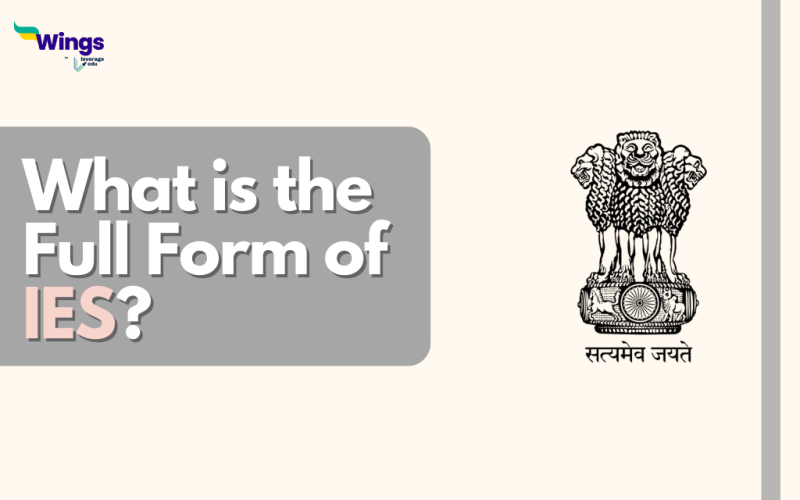The IES full form is Indian Engineering Services. It is a prestigious and highly competitive examination conducted by India’s Union Public Service Commission (UPSC). IES is a comprehensive recruitment process that selects engineers for various government departments and organisations. Meanwhile, the examination covers four significant branches of engineering: Civil Engineering, Mechanical Engineering, Electrical Engineering, and Electronics & Telecommunication Engineering. The government appoints successful candidates to key positions in sectors such as Railways, Defense, Power, Telecommunications, and more. Furthermore, IES offers a challenging career path with opportunities to contribute to the nation’s infrastructure and development. It provides a platform for talented engineers to serve the country in important engineering roles. Read to know more about the eligibility to become an IES.
What is the Eligibility for IES?
The eligibility criteria for the Indian Engineering Services (IES) examination are as follows:
- Nationality: The candidate must be a citizen of India or a subject of Nepal/Bhutan or a Tibetan refugee who settled in India before January 1, 1962.
- Age Limit: The candidate’s age should be between 21 and 30 years. Age relaxation is provided for certain reserved categories.
- Educational Qualification: The candidate must have obtained a degree in Engineering from a recognized university or institution.
- Physical Standards: Candidates must meet the physical standards set by the concerned authorities.
- Number of Attempts: The authorities allow candidates from different categories a limited number of attempts. Ranging from 4 to 7 attempts.
What is the selection process for IES?
Similarly, the selection process for the Indian Engineering Services (IES) consists of the following stages:
- Preliminary Examination: It is an objective type examination that tests the candidate’s general awareness, aptitude, and engineering knowledge. It serves as a screening test.
- Main Examination: This is a written examination that focuses on the technical aspects of engineering. It includes conventional papers related to the candidate’s chosen engineering discipline.
- Personal Interview: Candidates who qualify for the Main Examination are called for a personal interview conducted by the UPSC. It assesses the candidate’s personality traits, communication skills, and knowledge in the relevant field.
- Final Merit List: The final merit list is prepared based on the candidate’s performance in the Main Examination and the Personal Interview.
- Document Verification: Shortlisted candidates undergo document verification to ensure their eligibility and the authenticity of the information provided.
In conclusion, the selection is based on the candidate’s performance in all the stages mentioned above.
FAQ
IAS and IES are both prestigious government jobs, but they have different focuses. IAS officers hold administrative roles across various government departments, while IES officers specialize in engineering and technical fields.
An IES officer’s salary typically ranges from Rs. 60,000 to Rs. 2,00,000 per month, including allowances.
IES officers hold significant power in executing engineering-related projects and policies, contributing substantially to national development.
This was all about the Full Form of IES. Visit our Full Form Page to discover more intriguing articles about full forms. You can also get a consolidated list of 300+ full forms here! Get in touch with the experts at Leverage Edu in order to kickstart your study abroad journey!
 One app for all your study abroad needs
One app for all your study abroad needs













